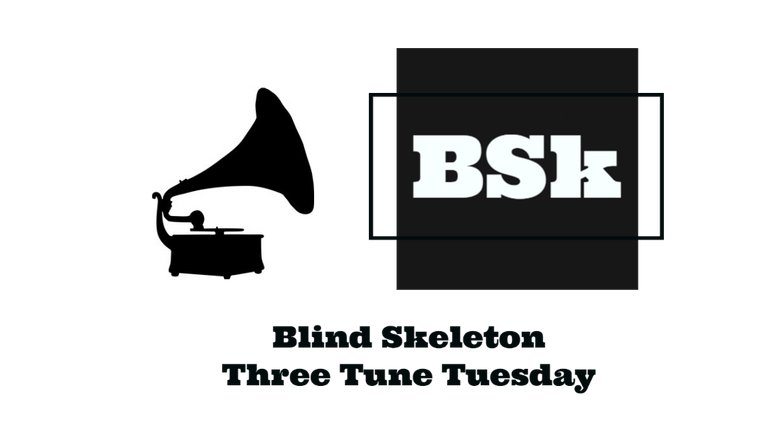Three Tune Tuesday for Jan 23, on Jan 28!
It's time again for Three Tune Tuesday, that day of the week where members of the Hive community shares three songs of their liking with the rest of the community.

I take a slow, relaxing approach to Three Tune Tuesday: I like to share pre-1924 78rpm songs from my collection, and record them while playing on an appropriate time-period windup phonograph. I encourage you to take a few moments and slow down with me. Settle down, close your eyes, and take yourself back.. way back.. in time, to a distant uncle's parlour in the early 1920's. There are comfortable seats, pleasant conversation, and old music.
And yeah. I'm late this week. Consider it a late gift.
This week I'm visiting the year 1915 and have three songs to share.
Ragging the Scale
In 1915, the United States was experiencing a surge in industrial growth and a burgeoning cultural scene, with the popularity of jazz and ragtime music at its core. This song, with its upbeat tempo and lively rhythm, reflects the era's optimistic spirit and the cultural shift towards more expressive and rhythmic forms of music. Ragtime, characterized by its syncopated melodies, was a precursor to jazz and symbolized a break from traditional European music styles, mirroring the broader societal shift towards modernity and innovation. "Ragging the Scale" captured the essence of this transformation, appealing to a nation that was rapidly evolving and embracing new forms of entertainment, such as radio and phonograph recordings.
Honolulu March
"Honolulu March" shows an interesting facet of the American musical landscape in 1915, highlighting the cultural diversity and the growing influence of regional music styles. In an era marked by technological advancements and a burgeoning entertainment industry, the popularity of this Hawaiian piece underscored America's fascination with exotic and diverse musical forms. The song, with its distinctive Hawaiian rhythms and melodies, introduced mainland audiences to the sounds of the Pacific Islands, a region that had become increasingly significant to the United States following Hawaii's annexation in 1898.
I Didn't Raise my Boy to Be a Soldier
As the United States grappled with the question of its involvement in World War I, this song emerged as a poignant expression of the anti-war sentiment prevalent among the American public. Released in a time of intense debate over military intervention, the song's message resonated deeply with a nation deeply divided over the prospect of entering the European conflict. Its lyrics, emphasizing pacifism and the value of human life over the horrors of war, captured the spirit of the isolationist sentiment that was dominant in the United States at the time. The song's popularity reflected the widespread desire for peace and the reluctance to sacrifice the nation's youth in foreign conflicts. It was one of the first major anti-war songs in the United States, setting a precedent for music as a medium for political expression and protest.
Three Tune Tuesday (TTT) is initiated by @ablaze.
Blind Skeleton Online Radio: https://blindskeleton.one/radio/
Listen to the podcast!
https://blindskeleton.one/blind-skeleton-podcasts/
(c) All images and photographs, unless otherwise specified, are created and owned by me.
(c) Victor Wiebe
Blind Skeleton
Online Radio! 24x7 of OTR classics:
The Skeleton Brew coffee shop is open!
